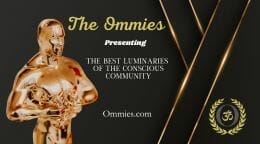Improve Your Relationships with Wise Speech
When we cultivate wise speech, we don’t fear saying something wrong. However, we’re more attuned to the quality of our words and their effect on others. We speak up and say, “You seem upset by what I just said. Have I hurt your feelings?” inviting the other person to let go of his suffering. Wise speech fosters good relationships and partnerships and prevents future crises.
Sometimes, we should speak up in order to influence someone to change, but wise speech requires that we do so kindly and respectfully. Although it may seem well meaning, being blunt or tactless with another is unkind and usually motivated not by a genuine desire to help that person but by the need to feel superior and be intimidating. Wise speech is gentle, never cruel or harsh. It enhances the situation by inviting everyone to improve it instead of shutting down the communication process.
To speak the truth respectfully, you must let go of your desire to pressure others into doing what you want. At some point, you may discern that no matter how often you say the same thing with kindness, honesty, and compassion, you’ll never affect the other person the way you’d like. Part of wise speech is letting go of your attachment to having your words change the way others think, feel, or behave.
But not only do we need to be conscious of the words we say to others but also the ones we direct at ourselves. Despite their popularity in our culture, cynicism and pessimism have been shown to be poor tools for creating a sense of well-being, although they may provide an illusory sense of power for a short time. The cynic who claims, “I know the system isn’t set up to allow people like me to achieve my goals,” isn’t empowered but trapped in an unwholesome state of mind where his only choices are anger, sadness, and other unwholesome emotions. There can be no true joy or contentment in believing that what lies ahead will, in all certainty, generate more suffering.
Often people who are verbally abusive have the personality diseases of insecurity, inferiority, helplessness and hopelessness. When I’m coaching or counseling my clients I teach them is how to become mindfully aware of their unwholesome emotions so instead of being completely immersed in an experience that they’re unwittingly manipulating, they’ll experience a sense, however fleeting, that they’re doing something unwholesome. An uncomfortable thought such as, “I’m trying to make him feel guilty so that he does what I want him to,” or “I ought to let her know that I disagree, but it’s easier for me to say yes and work behind her back to do what I really want” may arise. Instead of quickly dismissing it, they allow themselves to experience any guilt or shame that arises. Then they consciously and bravely explore why they feel the need to resort to manipulation and control. This discovery process gives them the strength to accept the situation exactly as it is, even if they don’t like it, and use positive means to influence it for the better.
OMTimes Magazine is one of the leading on-line content providers of positivity, wellness and personal empowerment. OMTimes Magazine - Co-Creating a More Conscious Reality








